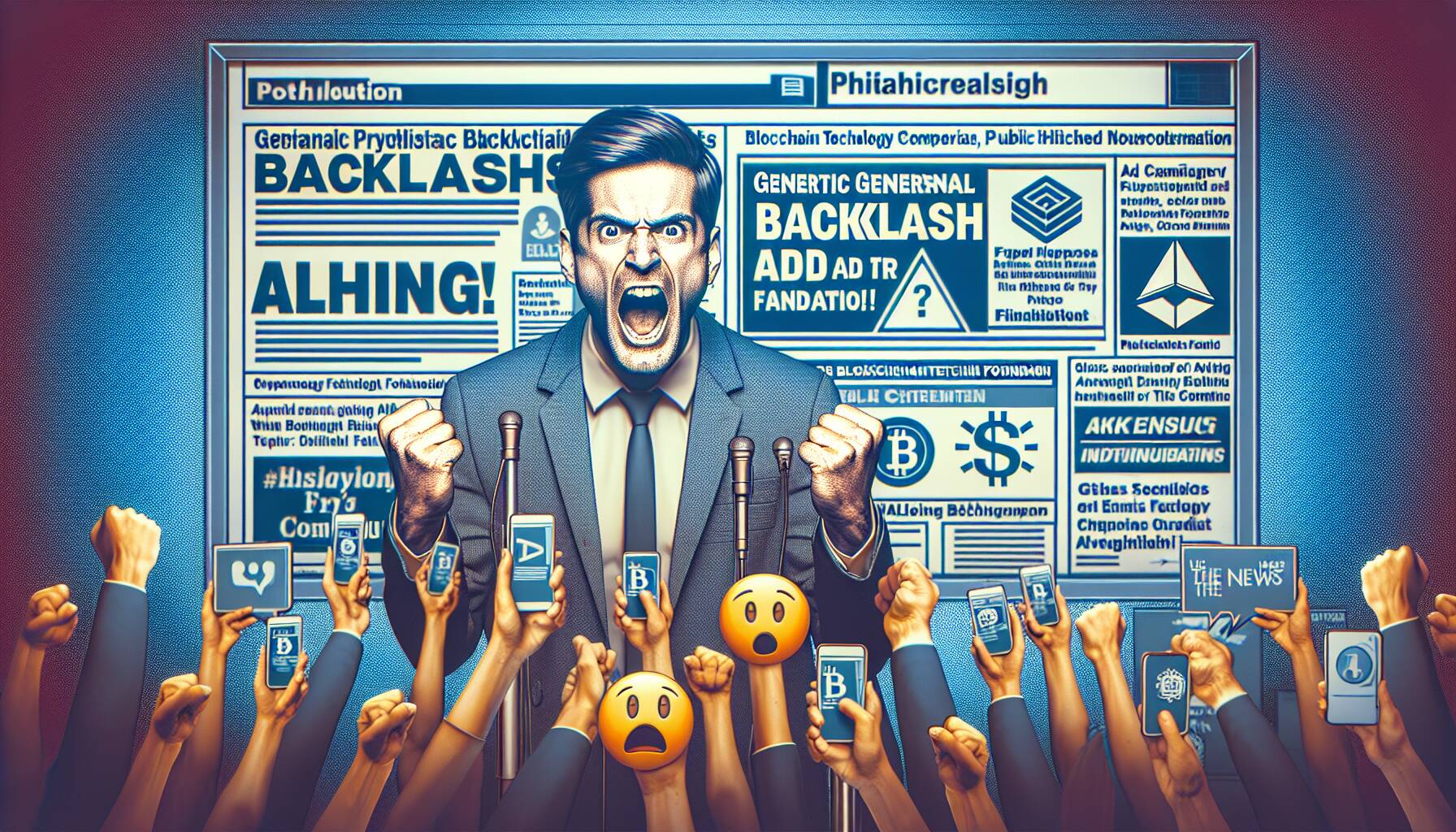The Solana Foundation has recently found itself at the center of a heated controversy following the release and rapid withdrawal of a provocative advertisement. Late Monday, the Foundation withdrew an ad that many deemed anti-queer, just hours after it surfaced. The now-deleted advertisement presented a whimsical portrayal of “America” in therapy, implying that the nation, represented as a man, was more concerned with technological advancements like crypto and space travel than with discussions around gender identity.
The therapist in the ad insists on focusing on “pronouns” and “new genders,” leading to a frustrated outburst from the embodiment of America, who expressed a desire to prioritize innovation over identity matters. This imagery was criticized for invoking right-wing perspectives that many believe clash with the values of diversity and inclusion, which the Solana Foundation has publicly upheld as part of its mission.
“America, numbers are non-binary,” the therapist insisted after chiding his “rational thinking syndrome.”
This advertising misstep has prompted backlash from various sectors within the crypto community, with some condemning it as pandering politics, while others found it outright offensive. Notably, this shift comes after the Foundation’s previous conferences had emphasized a commitment to equity and the inclusion of all identities, showcasing an apparent contradiction in its messaging.
The implications of this ad could ripple through the crypto sector, which has historically tried to maintain a balance between bipartisan support, particularly with various political figures. The fallout might challenge the ability of crypto enthusiasts to collaborate across the political spectrum, marking a potential shift in the landscape of crypto politics.

The Solana Foundation’s Controversial Ad and Its Implications
The recent actions of the Solana Foundation have sparked significant dialogue regarding the intersection of cryptocurrency and political culture wars. Here are the key points related to this event:
-
Controversial Ad Release:
- The ad portrayed “America” in therapy, focusing on gender issues instead of technology.
- This led to accusations of the Solana Foundation pandering to right-wing sentiments.
-
Core Values at Stake:
- The Foundation has previously emphasized diversity, equity, and inclusion (DEI) as core values.
- Criticism arose over the apparent contradiction between the ad and these stated values.
-
Previous Conferences’ Stance:
- Code of conduct at past events prohibited intimidation based on gender identity and expression.
- The shift in messaging raises questions about potential changes in the organization’s commitment to DEI.
-
Political Ramifications for the Crypto Industry:
- The ad signals a potential leaning towards partisan politics within the cryptocurrency sphere.
- Previously bipartisan, the crypto industry’s relationship with Trump may evolve, affecting alliances.
The Solana Foundation’s actions could impact readers by influencing their perspectives on how cryptocurrency organizations align with political ideologies and the importance of diversity in industry practices.
Solana Foundation’s Controversial Ad Stirs Up Crypto Politics
The recent decision by the Solana Foundation to pull its controversial advertisement has stirred considerable discussion in the crypto community, raising questions about its implications for both public perception and industry relationships. This situation highlights a delicate balance between engaging diverse audiences and navigating the charged landscape of cultural and political identity.
Competitive Advantages: The Solana Foundation, known for its commitment to advancing the Solana blockchain, attempted to capture attention through provocative messaging. By tapping into the notion of a cultural conflict, the ad aimed to draw in attendees for its U.S. conference, potentially appealing to a segment that resonates with its underlying themes. Such strategies could boost registration numbers and generate buzz within communities that favor bold, unabashed discussions about technology and innovation.
Competitive Disadvantages: However, the backlash received indicates a significant misstep. The advertisement alienated many who advocate for diversity and inclusion, starkly contrasting with the organization’s previously stated values. Critics described the ad as pandering or offensive, suggesting it could dissuade potential attendees who are committed to these principles. This unintentional shift could damage Solana’s reputation among its community members, especially those who value a reconciled relationship between tech and social justice.
This turbulent context can either benefit or create problems for various stakeholders in the crypto space. On one hand, those aligned with more conservative views may feel invigorated and more willing to participate in the conversation, finding new avenues within the industry while possibly galvanizing support in a politically charged climate. On the other hand, progressives and advocates for marginalized communities may feel disillusioned, prompting them to distance themselves from Solana and similar initiatives within the crypto sector. Moreover, the potential emergence of a partisan divide could risk alienating a wider audience that currently passionately supports cryptocurrency as a non-partisan, inclusive innovation.
In summary, while the Solana Foundation’s provocative marketing strategy aimed to create a stir and drive participation, it highlights a critical dilemma. Striking a balance between leveraging political themes and staying true to foundational values can define the future dynamics of audience engagement in the ever-evolving world of cryptocurrency.

















